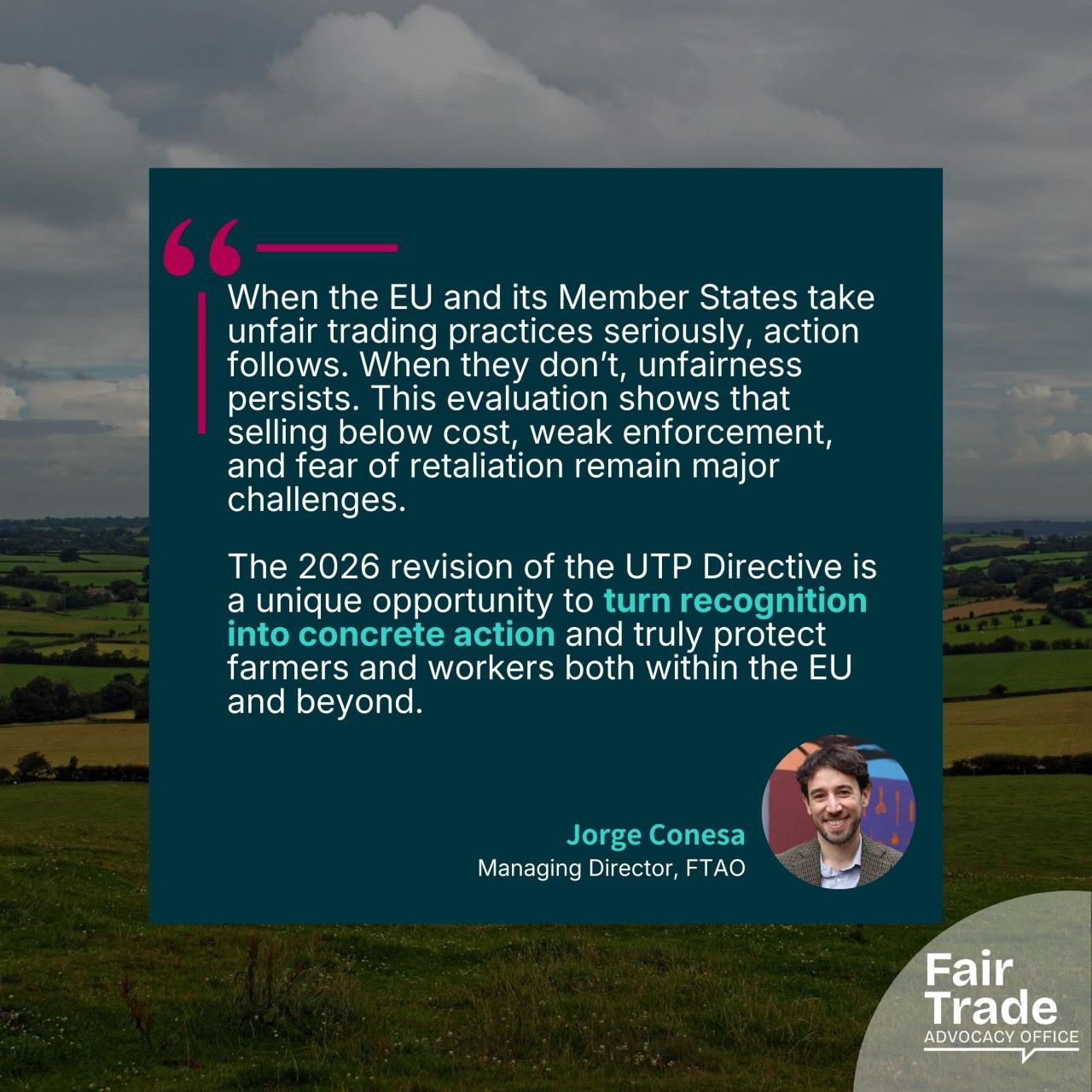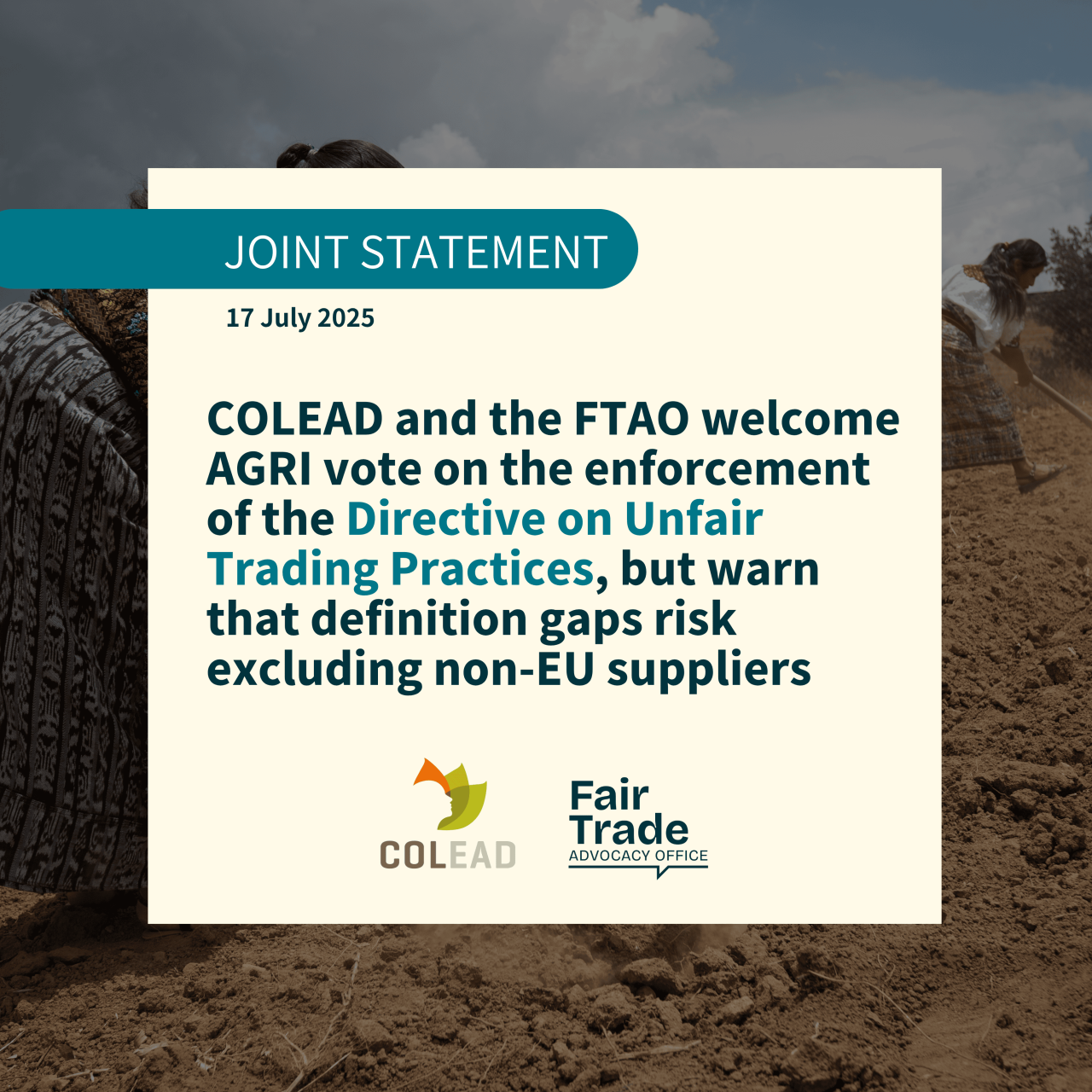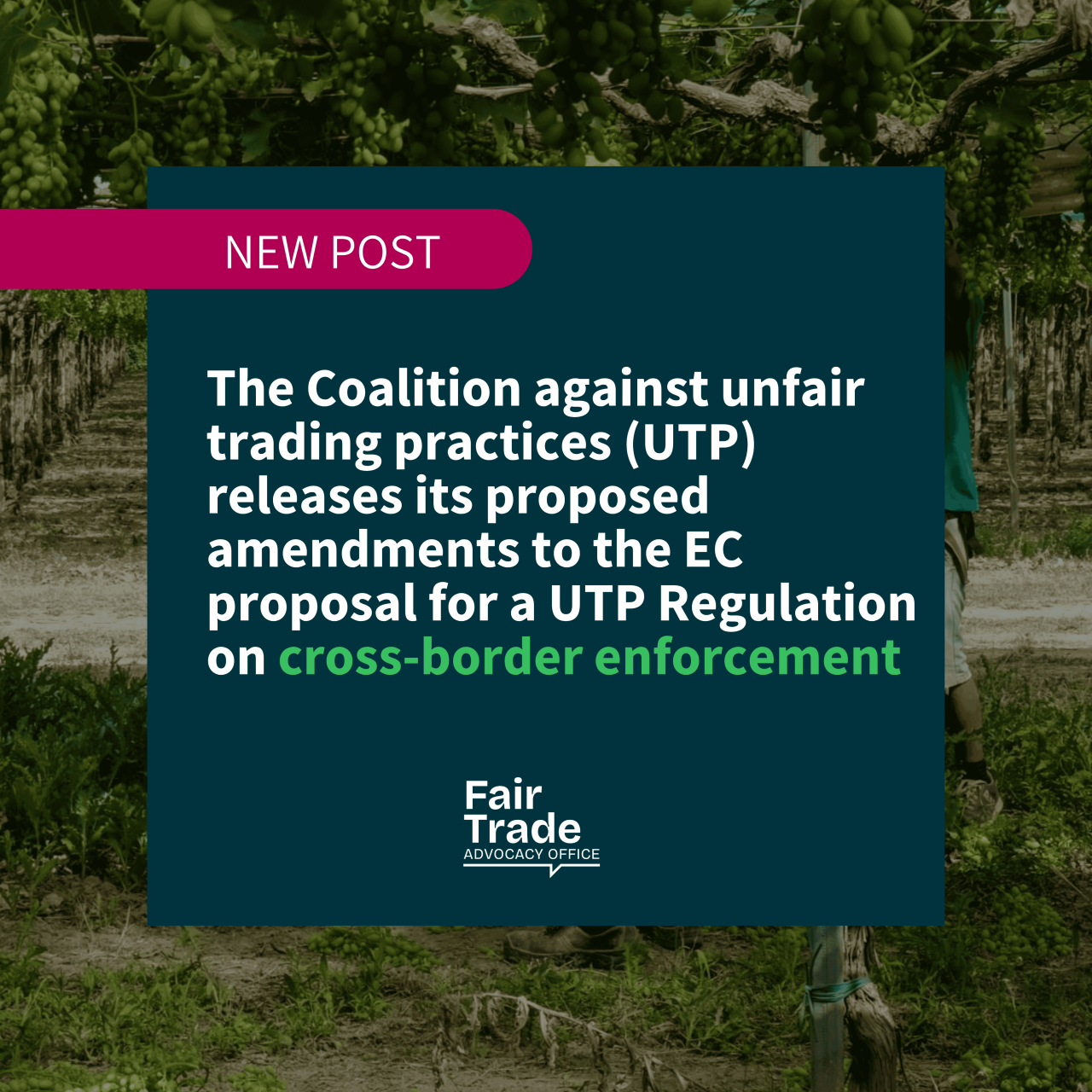Unfair Trading Practices (UTPs) beyond the EU: Two case studies

In 2019, the EU adopted Directive (EU) 2019/633 on unfair trading practices (UTPs) in business-to-business relationships in the agri-food supply chain, which introduces a minimum level of protection for agri-food suppliers such as farmers, livestock breeders, companies etc., who typically have lower bargaining power when trading with actors higher up in the agri-food chain.
By setting out a list of ‘forbidden’ unfair practices such as late payments beyond a certain date, and unilateral contract changes made by the buyer, this directive offers sellers the legal entitlement to lodge a complaint to their respective EU member state authority, should they experience one of the practices listed in the directive. This directive is one of the few legal instruments of its kind to exist.
One key element to highlight in this directive is that suppliers from outside the EU are also legally entitled to file complaints, provided they are selling to a buyer that is based in the EU. This means that the directive can be an important tool in addressing injustices in global supply chains and can contribute to wider development objectives such as securing better livelihoods for producers and exporters in third countries.
To ensure that this key factor be considered in the upcoming Evaluation of the Directive, the Fair Trade Advocacy Office commissioned several reports to assess the implementation of the Directive in third countries: one looking into the cocoa sector in Ecuador, the other at the horticulture sector in Rwanda.
Summary of Key Findings:
- Despite the directive protecting confidentiality, the “fear factor” still prevents many exporters from potentially filing a complaint, as suppliers do not want to jeopardise their long-term and future relationships with their buyers. This also affects sellers within the EU.
- The Directive’s implementation beyond the EU remains largely unexplored. Most exporters who were consulted in the studies had no knowledge of the directive itself, nor enforcement authorities in EU Member States and complaint mechanisms. Those who did know about the directive were not given sufficient information and guidance be able to lodge a complaint, which meant implementation was ineffective.
- Unfair Trading Practices continue to occur in commercial relations between non-EU suppliers and EU buyers. Among the most common practices were last-minute cancellations, unilateral changes in contracts from the buyer, sellers taking over the risk of loss and deterioration from buyers, sellers being victims of commercial retaliation [black list], and a list of unsold products [grey list].
Summary of Recommendations:
- Urgent need to raise awareness of the complaint process: European enforcement authorities should engage with actors in non-EU countries such as regulatory bodies, national export boards, and embassies, to provide necessary legal information on the UTP directive, giving practical details and workshops on how the complaint process works. Government bodies and local NGOs can also be important channels to ensure the information reaches the suppliers covered by the directive.
- Improvement of existing complaint mechanisms: Harmonisation of mechanisms between enforcement authorities, such as streamlining complaint forms and remediation measures and having this information available in at least English so that suppliers have a clearer idea of how to engage with the complaint process.
- Other practices that the Directive could cover: (1) The black practice of buyer payment delays for more than 30 days or short-term cancellations for perishable goods, should be included to cover all agri-food products, not just those that are perishable. (2). A general clause should be added to assess imbalances in contractual relations so that suppliers who are in a weaker position can make full use of their rights, (3). Long-term contracts should be incorporated into the ‘grey list of practices’.
- Producers in third countries typically do not have direct contractual relations with EU buyers. This means that it is rather exporters who possess legal rights under this directive, rather than producers. Further research could investigate how this Directive could be reviewed to ensure some of these rights are transferred to producers as well.
- Create an EU trade body to support complaints from third-country suppliers: Unlike EU Member states, third countries do not have a national body they can contact in cases when they experience a UTP. The creation of a new EU body with a mandate to collect complaints from third countries and that can act as a kind of ‘intermediary’ between third country exporters and EU Member state enforcement authorities.
Get in touch
For more information about the FTAO's work on unfair trading practices, please reach out to Isabel Garland, Policy and Project Officer, at garland@fairtrade-advocacy.org
More From The Workstream

The FTAO acknowledges the EC's evaluation of the Directive on Unfair Trading Practices and welcomes its analysis aimed at closing the remaining gaps

COLEAD and the FTAO welcome AGRI vote on the enforcement of the Directive on Unfair Trading Practices, but warn that definition gaps risk excluding non-EU suppliers

UTP Coalition releases proposed amendments to the proposal for a UTP Regulation on cross-border enforcement
